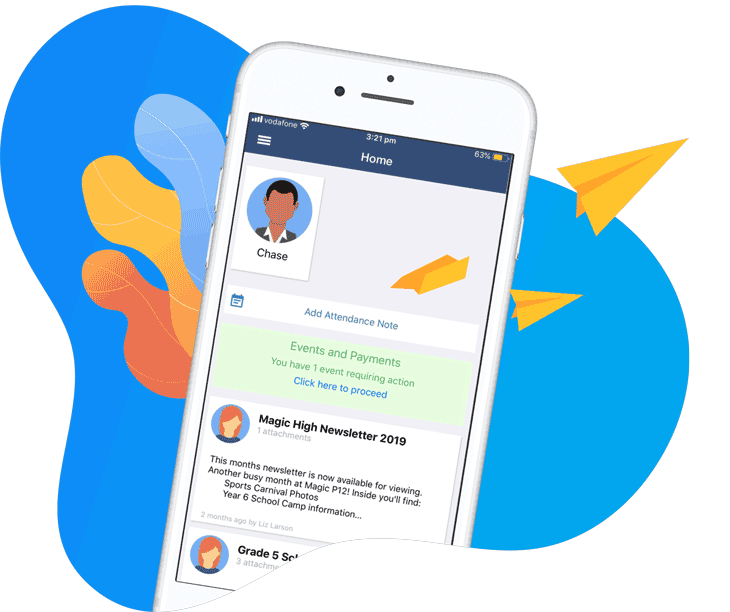How do educational leaders navigate the fast-changing world of technology while keeping schools focused on what truly matters? This question was at the heart of EduTECH 2024. The event brought together thought leaders, educators, and innovators to explore how strong leadership can shape the future of education.
Building partnerships for future-ready schools
When talking about preparing students for the future, it’s impossible to overlook the power of collaboration. Prof. Jessica Vanderlelie, Deputy Vice Chancellor Academic at La Trobe University, underscored this point by emphasising the need for schools, industries, and governments to work together, especially in addressing regional skills shortages.
“To really prepare students for the future, we need to build strong partnerships across all sectors,” Vanderlelie pointed out.
Why is this collaboration so crucial?
- It aligns education with job market needs: Students learn skills that are in demand, setting them up for success.
- It brings together different expertise: Creating well-rounded learning experiences for students.
- It closes the gap between urban and rural education: Ensuring equal opportunities for all, no matter where they’re from.
Considering the bigger picture, David Yip, Chair of the Innovation Taskforce at the Future Skills Organisation, challenged educators to think globally. “We need to think outside the box and learn from strategies that work well in other countries,” he suggested. Consider the possibilities of local schools adapting international best practices to meet their unique challenges.
By nurturing these partnerships, students aren’t simply prepared for what’s next – but rather, they’ve been set up to lead the way.
Embracing technology while staying grounded
There’s no doubt that technology is reshaping education, but how can schools ensure it enhances learning without losing the human touch? Michelle King, National Higher Education Lead at KPMG, offered some food for thought: “AI can really enhance learning, but we need to make sure teachers are confident in using these tools.”
Dr Adrian Camm, Principal at Westbourne Grammar School, provided a clear example of how to get it right. At Westbourne, they’ve implemented a data analytics dashboard that offers real-time insights into student performance. But here’s the key – this isn’t just about having the latest gadgets. It’s about using technology to support meaningful educational goals.
“A digital strategy needs to be aligned with your educational vision,” Camm explained. “At Westbourne, our dashboard lets us track student progress in real-time, giving teachers the data they need to support each student’s unique learning journey.”
So, what makes Westbourne’s approach work?
- Integrating data analytics into daily operations: Teachers use real-time data to fine-tune their teaching methods.
- Providing ongoing training for staff: Ensuring teachers can make the most of the digital tools available.
- Engaging the whole school community: Involving students, teachers, and parents ensures everyone benefits from the digital strategy.
Utilising technology, not just an add-on, but as a core part of how schools operate can help to elevate the learning experience for students and teachers.
Making learning more flexible and personal
But how can education be tailored to better meet the students’ needs? Paul Watson, Principal of Emmanuel Catholic College in Western Australia, shared a simple yet powerful change – longer learning sessions. The result? Increased engagement and improved academic performance.
“By giving students more control over their learning, we’ve seen them take greater ownership and focus more in class,” Watson said.
And what if students had even more flexibility? Michelle Dennis, Head of Digital at Haileybury, echoed this with her school’s online model, where students have more say in how and when they learn.
Why does this approach resonate so well?
- It keeps students engaged: They have the time to dive deep into subjects that interest them.
- It supports different learning styles: Every student learns differently, and this approach respects that.
- It prepares students for lifelong learning: Teaching them to manage their own education, a skill that will serve them well beyond school.
By adopting new technology and implementing flexibility into classrooms, educators can create an environment where each students’ learning journey is as unique as they are.
Putting relationships and wellbeing first
Of course, even with all the technology in the world, education is still about people. Dr Briony Scott, Principal of Wenona School, drove this point home. “Strong relationships are key to making sure students are not just learning, but thriving,” Scott said.
So, how can schools foster these vital relationships?
- Seeing students as whole individuals: Addressing their emotional and social needs, not just academic ones.
- Encouraging open communication: Building a supportive community among students, teachers, and parents.
- Supporting teachers: Providing resources and development opportunities helps them manage their workloads and stay positive.
As Scott put it, “Education isn’t just about facts and figures; it’s about nurturing people to become thoughtful, caring, and resilient members of society.” Your entire school community can benefit when relationships and wellbeing are at the heart of your school’s approach.
Looking ahead with confidence
So, where can your school go from here? The discussions at EduTECH 2024 made one thing clear: strong leadership is more essential than ever, especially when navigating the new breed of modern education challenges.
At Compass, we’re here to support educational leaders with the tools they need to create innovative, secure, and caring learning environments.
Our solutions help schools:
- Facilitate collaboration: Bringing together educators, students, and parents.
- Support flexible learning: Providing platforms that adapt to different educational needs.
- Safeguard technology use: Offering secure and easy-to-use systems.
- Strengthen community relationships: Enhancing communication and engagement.
As education continues to evolve, Compass is committed to helping schools stay ahead. Together, we can build a future where education is dynamic, inclusive, and effective.
Interested in learning how Compass can support your school’s leadership goals? Let’s chat.






